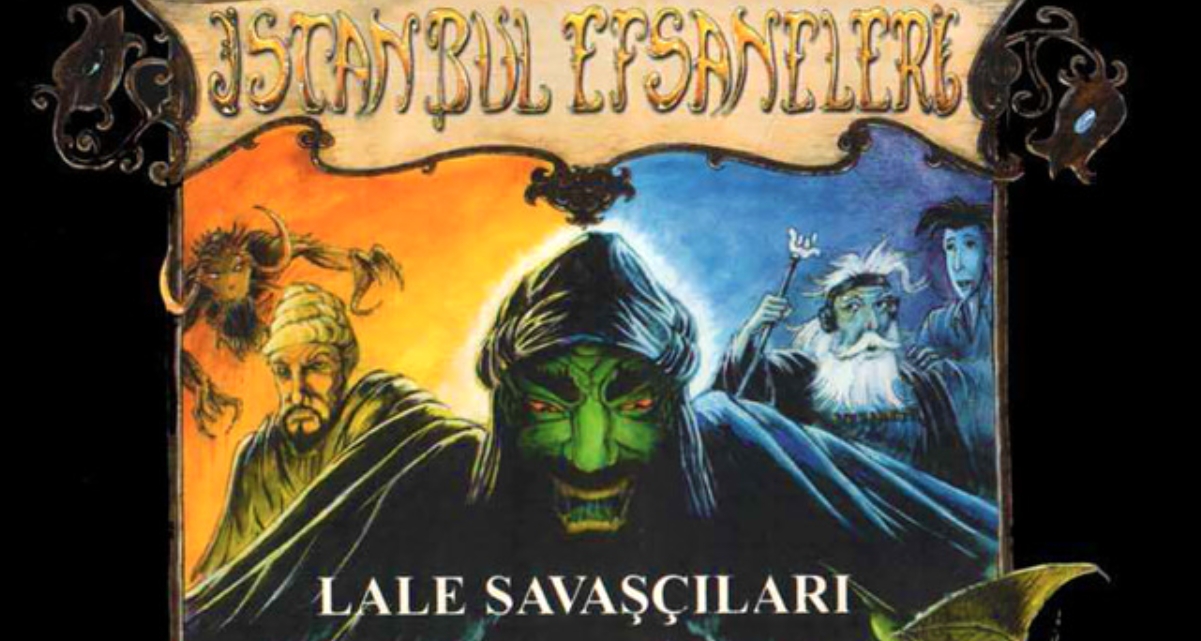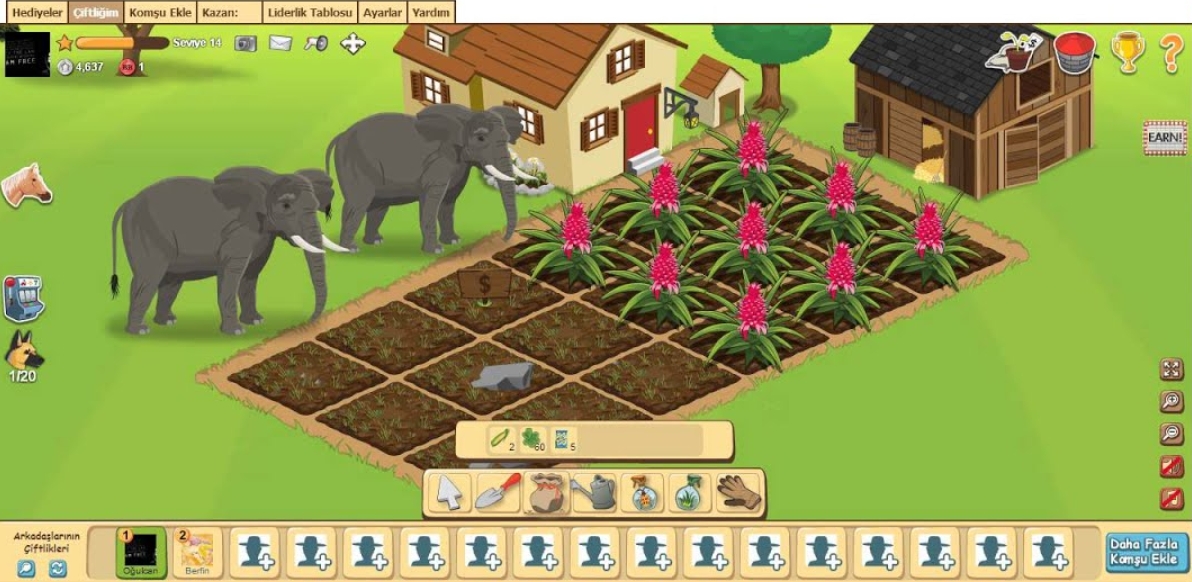The Turkish mobile market is experiencing a real heyday. Local developers receive record investments for the country, and the games created by them become world hits. However, this was not always the case. The Rest of the World edition delved into the history of the Turkish gaming industry and talked about how Istanbul turned into the world capital of casual gaming.
Toon Blast
A small slice of the Turkish gaming industry
- According to the Startups.watch research platform, today 20% of the most downloaded mobile games in American mobile stores are developed by Turkish studios. Among them were several hyper-casual titles from Rollic and Good Job Games.
- As of August last year, Turkish startups related to mobile games have attracted investments totaling $2.4 billion over the past five years.
- Last year, Zynga made the largest deal in its history, buying Peak Games for $1.8 billion. This made the developer Toon Blast the first gaming “unicorn” in the country.
- In June, the Dream Games studio’s valuation reached $1 billion just four months after the release of its first Royal Match game. Every month, the studio earns $20 million on in-game purchases.
- Today, more and more international gaming companies are opening offices in Istanbul. Among them are Voodoo and Crytek.
What do coffee shops and board games have to do with it?
Keloğlan is considered to be the first video game developed in Turkey. It was an adventure game about the eponymous hero of local folklore, released for the Commodore 64 in 1989. It was followed by the Hançer strategy of 1992 and the cult RPG Tulip Warriors of 1994.
In addition to these titles, not many notable projects were released in Turkey at the turn of the 20th and 21st centuries. However, the passion for games in one form or another has always been inherent in the locals.
Tulip Warriors
The main role here was played by numerous coffee shops, some of which have existed for centuries. Traditionally, men gathered in them and played board games like checkers, backgammon and dominoes over a cup of tea or coffee. Okey, a board game in which it is necessary to assemble a certain sequence of knuckles with numbers, was particularly popular in Turkey.
In the mid-80s, local entrepreneurs began to open gaming salons, installing Atari arcade machines in them. They were very popular, but were often criticized for allegedly poisoning teenagers with nicotine (then in Turkey it was possible to smoke in public places) and forcing them to spend pocket money.
Internet cafes have replaced arcade salons. The first such institution opened in Istanbul in 1995, and over the next 17 years, about 30 thousand more such cafes appeared in the country.
The real breakthrough for Turkish gaming happened in 2001. Then a young programming teacher Ihsan Karagülle wrote a small program to track the status of dial-up connections. The fact is that at that time he was teaching in the east of the country, where there were frequent interruptions in the operation of the Internet.
Karagulle launched the program on his own website Hakkarim.net . The project began to rapidly gain popularity when he added a chat and a digital version of OK to it. Tens of thousands of people visited the site from home or an Internet cafe to play with other people. As a result, the teacher had to rent additional servers in Istanbul and Ankara.
Karagulle decided to monetize the site with the help of advertising and franchising. On his servers, other people could open their own digital salons to play OK. Such a service cost from $92 to $115.
In total, more than 700 online salons were opened, and at the peak of popularity in 2010-2013 online at Hakkarim.net it reached 60 thousand people. According to Karagulle, his service has become an alternative to traditional coffee shops. He united people all over the country, but he did it already in the virtual space.
However, with the growing popularity of mobile games, the site of Karagulle began to lose users. Now his online has dropped to 21 thousand people.
Hakkarim.net
The appearance of Peak Games
One of the main roles in the popularization of mobile gaming was played by Bugra Koç. In the noughties, he worked as a product manager at the Turkish equivalent of Yahoo — the Mynet website.
In 2001, the company wanted a large audience of its web resource to start playing board games online. Mynet launched a gaming platform in the midst of the economic crisis in the country. However, this did not prevent it from becoming a hit — by 2012, 12 million people played the company’s games every month.
Having gained the necessary experience, Koch, together with a group of friends, founded Peak Games in 2010. “We dreamed of building a global technology company in Istanbul. We knew that free—play mobile games are the future of the whole business and a new way of socialization. So we put everything on this idea,” he recalls.
Peak made a choice in favor of free-play titles also because the share of gaming retail in Turkey was gradually declining. Koch was sure that it was simply impossible to get local users to pay for games.
However, Peak still lacked expertise in a new and still emerging field. The co-founder of the company, Cedar Shahin, came to the rescue, who had previously lived in China for a year and studied in-game purchases. Together with Koch, they formed the main competitive advantage of Peak Games.
The developers started by creating various game adaptations of OK. They understood that 99% of users would not pay for their titles. At the same time, they still provided them with round-the-clock support. According to the businessmen, they wanted to become IBM from the world of board games.
Such a client-oriented strategy has fully justified itself. In 2010, Peak released Komşu Çiftlik farm, an analogue of FarmVille, which today has over a million subscribers on Facebook. “Social elements were the strength of our games. Maybe they didn’t have perfect animations and technically they weren’t perfect, but they met people’s needs and were entertainment for every day,” explains Koch.
Since then, Peak Games has released several more major hits, becoming one of the leaders of casual mobile gaming. Among the main projects of the company are Toy Blast and Toon Blast.
By the end of the 2010s, Peak already employed about 100 people. The developer attracted a lot of young professionals, offering them more comfortable conditions compared to many other Turkish companies.
Komşu Çiftlik
The Dark Side of the Turkish gaming industry
Today, the casual games industry in Turkey is on the rise. However, the director of the BUG gaming laboratory at the University of Bahcesehir, Güven Çatak, believes that it is extremely unstable.
Every year BUG accepts about 70 first-year students who hope to break into the gaming industry. Many of them are sent to this program by their parents — they dream that one day their children will be able to build their own gaming company.
According to Chatak, every student wants to make their own Assassin’s Creed. However, as a result, they face the harsh socio-economic realities of Turkey. Young professionals understand that they are forced to feed their families and refuse to develop complex projects for a long time in favor of casual fritupley titles.
The market of such games is similar to roulette. The chances of making a new hit are extremely small, and only large publishers can win in this game. “Development teams are chips. And publishers have so many chips that they will be able to earn money wherever the ball eventually falls,” Chatak explains.
Thanks to the growth of the industry and foreign investments, Turkish developers can live comfortably today. Foreign companies pay in dollars, and studios like Gram Games and Masomo provide employees with insurance and other bonuses.
However, not all companies have such conditions. In small studios, the schedule is much more exhausting, and their employees sometimes receive far from the highest salary. Chatak compares them to sweatshops — developers are forced to generate ideas for new games every week, literally squeezing them out like sponges.
This mode leads to burnout. Burga Koch agrees with this: “People are constantly testing game metrics. “What prototypes should I create?” they ask. If I develop a prototype a week, then there will be 52 of them in a year, which will give me a 5% chance to make two hits in a year. Such a struggle is exhausting.”
The situation is also aggravated by tough contracts with publishers. According to one of the standard contracts, the developer is entitled to 10% of the company’s net profit from the game. This payment can range from $ 20 thousand to $ 100 thousand. Such conditions suit many studios that want to receive funding.
However, there is an important remark in the contract that may deprive developers of payments. If the net profit of the game is less than 200 thousand euros (or it will not be at all), the publisher will not pay the studio anything. However, most developers still have no other options.
Against the background of lockdowns last year, the Turkish gaming industry experienced a real boom. According to the analytical agency Gaming in Turkey, the number of gamers in the country has reached 36 million people, and the turnover of the local gaming industry has exceeded $880 million.
Due to the growth of casual gaming, many coffee shops in Istanbul have fallen into disrepair or gone bankrupt. Despite the current success, local gaming companies are not immune from such a fate. According to Koch, the constant outflow of personnel abroad, the harsh conditions of publishers and burnout can eventually lead to the collapse of the industry.




